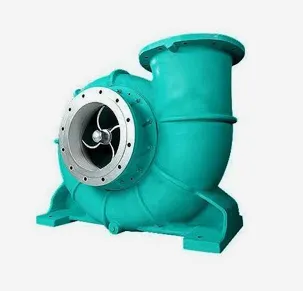Bengali
- Afrikaans
- Albanian
- Amharic
- Arabic
- Armenian
- Azerbaijani
- Basque
- Belarusian
- Bengali
- Bosnian
- Bulgarian
- Catalan
- Cebuano
- Corsican
- Croatian
- Czech
- Danish
- Dutch
- English
- Esperanto
- Estonian
- Finnish
- French
- Frisian
- Galician
- Georgian
- German
- Greek
- Gujarati
- Haitian Creole
- hausa
- hawaiian
- Hebrew
- Hindi
- Miao
- Hungarian
- Icelandic
- igbo
- Indonesian
- irish
- Italian
- Japanese
- Javanese
- Kannada
- kazakh
- Khmer
- Rwandese
- Korean
- Kurdish
- Kyrgyz
- Lao
- Latin
- Latvian
- Lithuanian
- Luxembourgish
- Macedonian
- Malgashi
- Malay
- Malayalam
- Maltese
- Maori
- Marathi
- Mongolian
- Myanmar
- Nepali
- Norwegian
- Norwegian
- Occitan
- Pashto
- Persian
- Polish
- Portuguese
- Punjabi
- Romanian
- Russian
- Samoan
- Scottish Gaelic
- Serbian
- Sesotho
- Shona
- Sindhi
- Sinhala
- Slovak
- Slovenian
- Somali
- Spanish
- Sundanese
- Swahili
- Swedish
- Tagalog
- Tajik
- Tamil
- Tatar
- Telugu
- Thai
- Turkish
- Turkmen
- Ukrainian
- Urdu
- Uighur
- Uzbek
- Vietnamese
- Welsh
- Bantu
- Yiddish
- Yoruba
- Zulu
Telephone: +86 13120555503
Email: frank@cypump.com
ডিসে. . 26, 2024 23:05 Back to list
Understanding the Importance of Pumping Your Septic Tank Regularly for Proper Maintenance
Understanding Pumping a Septic Tank Importance, Process, and Maintenance
A septic tank is an essential component of many residential wastewater treatment systems, particularly in rural areas where municipal sewage systems are not available. Understanding the significance of periodic septic tank pumping is crucial for homeowners who rely on this system for wastewater management. In this article, we will explore the importance of septic tank pumping, the pumping process, and general maintenance tips to ensure your system functions efficiently.
Importance of Septic Tank Pumping
Septic tanks are designed to treat wastewater from household plumbing. Over time, solid waste and scum build up in the tank, necessitating occasional pumping to prevent overflow and maintain system efficiency. The general recommendation for pumping a septic tank is every three to five years, but this can vary based on factors such as household size, water usage, and the size of the septic system.
Failing to pump the septic tank regularly can lead to significant problems. For instance, if the tank becomes full, solids can flow out into the drain field, clogging the soil and causing costly repairs. Backed-up wastewater can seep into the yard or even into the home, leading to unsanitary conditions and health hazards. Besides, the accumulation of sludge can compromise the treatment process, resulting in untreated sewage entering the groundwater, which poses environmental risks.
The Pumping Process
The process of pumping a septic tank involves several steps that should be performed by a licensed professional. Here’s a brief overview of what you can expect during a pumping service
1. Inspection Before pumping, the technician will inspect the tank's access points and may check for visible signs of damage or leaks.
2. Pumping A vacuum truck is used to remove the sludge and scum from the tank. The technician will carefully extract all the waste material, ensuring that the tank is as clean as possible.
pump septic tank

4. Assessment The technician will assess the condition of the septic system and advise the homeowner on any repairs or improvements that may be necessary.
5. Documentation A good service provider will provide documentation of the pumping, including the volume of waste removed and any recommendations for future maintenance.
Maintenance Tips
To prolong the lifespan of your septic tank and minimize fuss with pumping, regular maintenance is essential. Here are some key maintenance tips
- Water Usage Be mindful of your household water consumption. Spreading out laundry loads and fixing leaks can help reduce the volume of wastewater entering the septic system.
- Avoid Flushing Inappropriate Items Never flush diapers, wipes, or other non-biodegradable materials. These items can lead to blockages and increase the need for pumping.
- Protect the Drain Field Avoid parking vehicles or placing heavy objects on or near the drain field, as this can compact the soil and impede the system’s functionality.
- Monitor Additives Many homeowners consider using septic tank additives to improve performance. While some additives can help break down organic material, it's essential to research their effectiveness and consult with a professional before using them.
In conclusion, regular septic tank pumping is vital for maintaining the health of your septic system and ensuring environmental protection. By understanding the importance of this process and adhering to good maintenance practices, homeowners can avoid costly repairs and extend the life of their septic systems. Ensuring that your septic tank is adequately serviced not only protects your investment but also contributes to the well-being of your family and the environment.
-
ISG Series Vertical Pipeline Pump - Chi Yuan Pumps Co., LTD.|High Efficiency, Energy Saving, Low Noise
NewsJul.30,2025
-
ISG Series Vertical Pipeline Pump- Chi Yuan Pumps|High Efficiency&Low Noise
NewsJul.30,2025
-
ISG Series Vertical Pipeline Pump-Chi Yuan Pumps Co., LTD.|High Efficiency&Energy Conservation
NewsJul.30,2025
-
ISG Series Vertical Pipeline Pump - Chi Yuan Pumps Co., LTD.|Advanced Hydraulic Design&Energy-Efficient Solutions
NewsJul.30,2025
-
ISG Series Vertical Pipeline Pump - Chi Yuan Pumps Co., LTD.
NewsJul.30,2025
-
ISG Series Vertical Pipeline Pump - Chi Yuan Pumps Co., LTD.|energy-efficient fluid handling&industrial durability
NewsJul.30,2025










